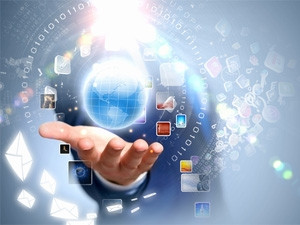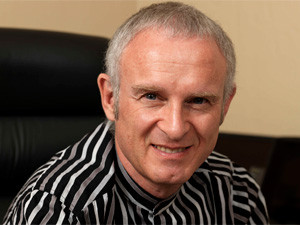
The Internet of the future will be immersive, while wearable items will become more pervasive, and borders between countries will all but dissolve, new research has shown.
As the World Wide Web turns 25 this week, the Pew Research Centre has released a report looking at how the Internet will impact our lives in the next decade. Although mainly focused on the US, predictions in "Digital Life in 2025" will also affect South Africans, although this journey will take longer and be more painful.
Experts polled by Pew see an "ambient information environment where accessing the Internet will be effortless and most people will tap into it so easily it will flow through their lives 'like electricity'," says the research.
It quotes Joe Touch, director at the University of Southern California's Information Sciences Institute, as saying: "The Internet will shift from the place we find cat videos, to a background capability that will be a seamless part of how we live our everyday lives. We won't think about 'going online' or 'looking on the Internet' for something ? we'll just be online, and just look."
Other predictions include mobile, wearable, and embedded computing that will be tied together in the Internet of things, "allowing people and their surroundings to tap into artificial intelligence-enhanced cloud-based information storage and sharing".
The report is the first of such papers that look to the future of the Internet, all of which are based on a canvassing of hundreds of experts about the future of privacy, cyber security, the Internet of things, and Net neutrality.
Pew's current research involved canvassing 2 558 experts and technology builders about where the world will be in 2025. The think tank says there were "striking patterns in their predictions".
Interconnections
Global connectivity that fosters more planetary relationships will also take place, says Pew. Writes Bryan Alexander, senior fellow at the National Institute for Technology in Liberal Education: "It will be a world more integrated than ever before. We will see more planetary friendships, rivalries, romances, work teams, study groups, and collaborations."
Pew also cites other benefits such as augmented reality, artificial intelligence and big data. However, says Arthur Goldstuck, MD of World Wide Worx, citizens will push back against these aspects, as they will see them as intrusive.

In the report, Pew quotes Judith Donath, a fellow at Harvard University's Berkman Centre for Internet and Society, as saying: "We'll have a picture of how someone has spent their time, the depth of their commitment to their hobbies, causes, friends, and family. This will change how we think about people, how we establish trust, how we negotiate change, failure, and success."
Other predictions include an "ubernet" that will diminish the meaning of geographical borders, and a concept called the Internets, as several new related networks are generated. Opportunities in education and health are also cited.
Says Aron Roberts, software developer at the University of California-Berkeley: "We may well see wearable devices and/or home and workplace sensors that can help us make ongoing lifestyle changes and provide early detection for disease risks, not just disease. We may literally be able to adjust both medications and lifestyle changes on a day-by-day basis, or even an hour-by-hour basis, thus enormously magnifying the effectiveness of an ever-more understaffed medical delivery system."
Invasive
There are also concerns over the future of the Internet, including "dangerous" and expanding divides between those who have, and those who do not, which could result in violence. More capacity for the abusive to "make life miserable for others", and a shift away from privacy for the convenience benefit are also cited as drawbacks.
The Internet of the future will also see tagging, 'databasing', and intelligent analytical mapping of the physical and social realms, Pew adds.
In addition, there will be a disruption of business models established in the 20th century, most notably impacting finance, entertainment, publishers of all sorts, and education, it says.
Robert Cannon, Internet law and policy expert, wrote: "The Internet, automation, and robotics will disrupt the economy as we know it." Yet, he sees "tremendous" opportunities as "information, the ability to understand that information, and the ability to act on that information will be available ubiquitously", which could allow the creation of a new world.
Goldstuck says the benefits - and disadvantages - will also reach SA, but not as quickly as in the US and other developed economies. He says corporate workers may well experience this world, but the masses will still wrestle with the issue of reliable and affordable access.
The amount of time it will take South Africans will be longer, and more painful, says Goldstuck. Yet, the "potential and possibilities of a world like that are very exciting".
Goldstuck notes, at the same time as the Internet becomes more pervasive, privacy will be an issue as it will be more intrusive.
Share